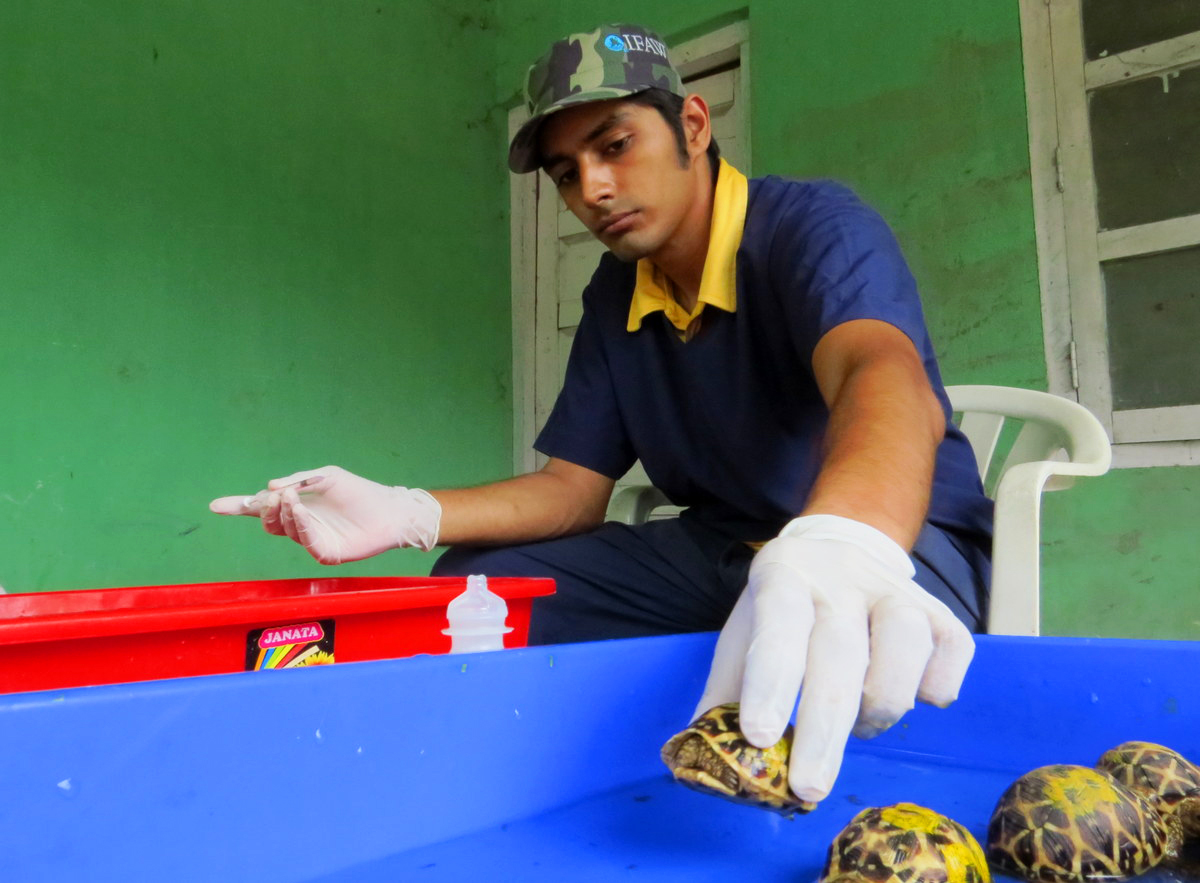Live Animals Seized in Trade - Global
Stopping smugglers is the first step, rescuing animals is the nexthundreds of frontline officers train to handle animals seized from illegal wildlife trade
hundreds of frontline officers train to handle animals seized from illegal wildlife trade

(Washington, DC – 18 April 2023) More than 200 frontline enforcement officers will acquire new skills on how to handle live animals seized from the illegal wildlife trade.
The trainings will be held across Indonesia, Congo and Guyana—countries that are a hotbed for wildlife trafficking of such sought-after protected species as pangolins, parrots and primates. Attendees will include ecological guards, customs and border control officers, and police.
“Enforcement officers are often the ones who come face-to-face with illegally traded wildlife. They want and need to be prepared to handle live wild animals in a safe and humane way, while also collecting the evidence needed for any future proceedings,” said Loïs Lelanchon, Program Manager for Wildlife Rescue at IFAW.
The trainings are a part of an ongoing project, Confiscated Animals – Rescue & Enforcement Trainings (CARE), led by IFAW and funded by the U.S. Department of State’s Bureau of International Narcotics and Law Enforcement Affairs (INL).
Locally, IFAW has partnered with Jakarta Animal Aid Network (JAAN) in Indonesia, the Jane Goodall Institute (JGI) in Congo, and government officials in Guyana, to implement CARE.
“Sadly, many wild animals interdicted in efforts to counter trafficking operations die because of a lack of understanding for care and handling. INL is helping address this problem by working through IFAW and local partners JAAN, JGI and the Government of Guyana to build the capacity of frontline law enforcement officers to properly handle wildlife seized from trafficking operations,” said Lisa Spratt, Branch Chief of Countering Wildlife Trafficking, Office of Global Programs and Policy at INL.
During each of the 13 training sessions, attendees will learn to use confiscation kits designed by IFAW and partners to reduce biosafety risks, safeguard animal welfare and preserve evidence integrity. The confiscation kits are designed to protect both animals and people. Each kit includes personal protective gear, animal first aid supplies and forensic evidence equipment.
“For most trafficked animals, enforcement officers are their last hope to be rescued and possibly released back to the wild—which is our ultimate goal,” said Lelanchon.
“Through this innovative program, INL aims to address the growing challenge of how to handle confiscated live animals in a way that not only protects them as evidence, supporting the successful prosecution of wildlife traffickers, but also provides humane care and the greatest possible opportunity for the animals’ release back into the wild or into a wildlife sanctuary,” said Spratt.
The training sessions will be held from mid-April to late July.
ENDS
Photos © IFAW available here
Press Contact:
Melanie Mahoney
mmahoney@ifaw.org
+1-508-815-7792
Related content
Our work can’t get done without you. Please give what you can to help animals thrive.